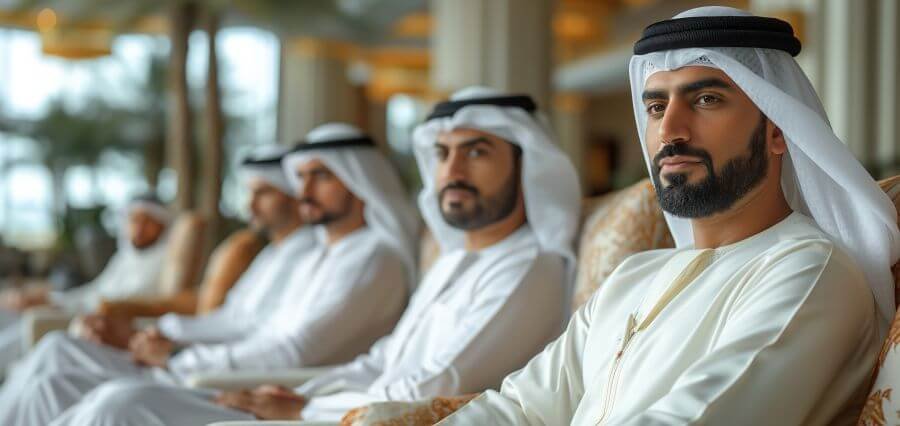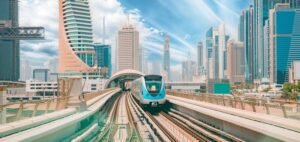Dubai, once a modest fishing village on the Arabian Peninsula, has rapidly transformed into a global metropolis known for its towering skyscrapers, luxury shopping, and vibrant economy. This remarkable transformation has been driven by visionary business leaders who have capitalized on the emirate’s strategic location, embraced innovation, and created an environment conducive to growth and diversification. In the modern era, these leaders are continuing to shape Dubai’s future by focusing on sustainability, technology, tourism, and economic diversification, making it a model city for the 21st century.
One of the most significant ways in which business leaders have transformed Dubai is through their unwavering commitment to innovation and technology. Recognizing that the future of the global economy lies in digital transformation, Dubai’s leadership has made substantial investments in creating a robust technological infrastructure. The Dubai Future Foundation, established in 2016, is a prime example of this forward-thinking approach. Under the guidance of Sheikh Mohammed bin Rashid Al Maktoum, the ruler of Dubai, the foundation aims to position Dubai as a global hub for innovation and technology. Initiatives like the Dubai 3D Printing Strategy, which seeks to make Dubai a leading center for 3D printing by 2030, and the Dubai Blockchain Strategy, which aims to make the emirate the first city fully powered by blockchain technology, are testament to the city’s commitment to embracing cutting-edge technologies.
Furthermore, the creation of the Dubai Internet City and Dubai Silicon Oasis has provided a fertile ground for tech startups and global technology companies to thrive. These business hubs have attracted major tech giants like Google, Microsoft, and Facebook, establishing Dubai as a regional leader in technology and innovation. Business leaders in Dubai understand that fostering a tech-savvy environment is crucial for staying competitive in the global market, and they are actively working to integrate artificial intelligence, robotics, and other advanced technologies into the fabric of the city’s economy.
In addition to technology, sustainability has become a cornerstone of Dubai’s transformation into a modern city. As the world grapples with the challenges of climate change and environmental degradation, Dubai’s business leaders are taking proactive steps to ensure that the city’s growth is sustainable. The Dubai Clean Energy Strategy 2050, launched by Sheikh Mohammed bin Rashid Al Maktoum, is a bold initiative aimed at transforming Dubai into a city that runs on clean and renewable energy. The strategy sets ambitious goals, including generating 75% of Dubai’s energy from clean sources by 2050 and making the emirate a global center for green economy.
To achieve these goals, Dubai has invested heavily in renewable energy projects, with the Mohammed bin Rashid Al Maktoum Solar Park being a prime example. When completed, this solar park will be the largest single-site solar project in the world, capable of generating over 5,000 megawatts of electricity. Business leaders in Dubai are also promoting sustainable building practices, with the city’s skyline now featuring numerous green-certified buildings. The implementation of energy-efficient technologies and the promotion of sustainable urban planning are key strategies in ensuring that Dubai’s growth is both economically and environmentally sustainable.
Tourism has long been a vital component of Dubai’s economy, and business leaders continue to play a crucial role in transforming the city into one of the world’s top tourist destinations. Dubai’s appeal lies not only in its luxurious hotels and shopping malls but also in its ability to offer unique experiences that cater to a diverse range of visitors. The development of iconic landmarks such as the Burj Khalifa, the world’s tallest building, and the Palm Jumeirah, an artificial archipelago, has solidified Dubai’s reputation as a city of superlatives.
However, the modern era of tourism in Dubai is not just about luxury and grandeur; it’s also about creating experiences that resonate with global travelers. Business leaders have recognized the importance of cultural and experiential tourism, leading to the development of projects like the Dubai Opera, which has become a cultural hub for the performing arts, and the Dubai Frame, a monument that celebrates the city’s past, present, and future. The upcoming Dubai Creek Harbour, with its blend of residential, commercial, and leisure facilities, is poised to become a new focal point for tourism in the city. Additionally, initiatives like the Dubai Tourism Vision 2020, which aims to attract 20 million visitors annually, reflect the emirate’s strategic approach to sustaining and expanding its tourism sector.
Economic diversification has been a key focus for Dubai’s business leaders as they work to reduce the emirate’s reliance on oil revenues. While oil played a crucial role in Dubai’s initial development, the leadership has long recognized the need to diversify the economy to ensure long-term sustainability and resilience. As a result, sectors such as finance, trade, real estate, and logistics have grown to become major contributors to Dubai’s GDP.
Dubai’s strategic location as a gateway between the East and the West has made it a global trade and logistics hub. The development of Jebel Ali Port, one of the world’s busiest ports, and the expansion of Dubai International Airport, now one of the world’s busiest airports in terms of international passenger traffic, have positioned Dubai as a critical link in global supply chains. The establishment of free zones such as Jebel Ali Free Zone (JAFZA) and Dubai International Financial Centre (DIFC) has attracted multinational corporations and investors, further boosting the emirate’s economic diversification efforts.
The finance sector, in particular, has seen significant growth, with Dubai emerging as a leading financial center in the Middle East. The DIFC has played a pivotal role in this transformation, offering a conducive environment for financial institutions, investment firms, and other financial services companies to operate. Business leaders in Dubai have also been quick to embrace fintech, with the DIFC launching the FinTech Hive, an accelerator program designed to support the growth of fintech startups in the region.
Dubai’s transformation into a modern city is also evident in its approach to governance and the development of smart city initiatives. The Dubai Smart City initiative, launched in 2013, aims to make Dubai one of the smartest cities in the world by leveraging technology to improve the quality of life for residents and visitors. The initiative encompasses a wide range of projects, from smart transportation and digital infrastructure to e-government services and data analytics. Business leaders have played a crucial role in driving these initiatives, recognizing that a smart city is not only more efficient but also more attractive to investors and residents alike.
The transformation of Dubai into a modern metropolis is a testament to the visionary leadership and strategic thinking of its business leaders. By embracing technology, sustainability, tourism, economic diversification, and smart governance, these leaders are ensuring that Dubai remains at the forefront of global cities in the 21st century. As Dubai continues to evolve, the collaborative efforts of its business leaders will undoubtedly play a central role in shaping the city’s future, making it a model for other cities around the world to follow.




